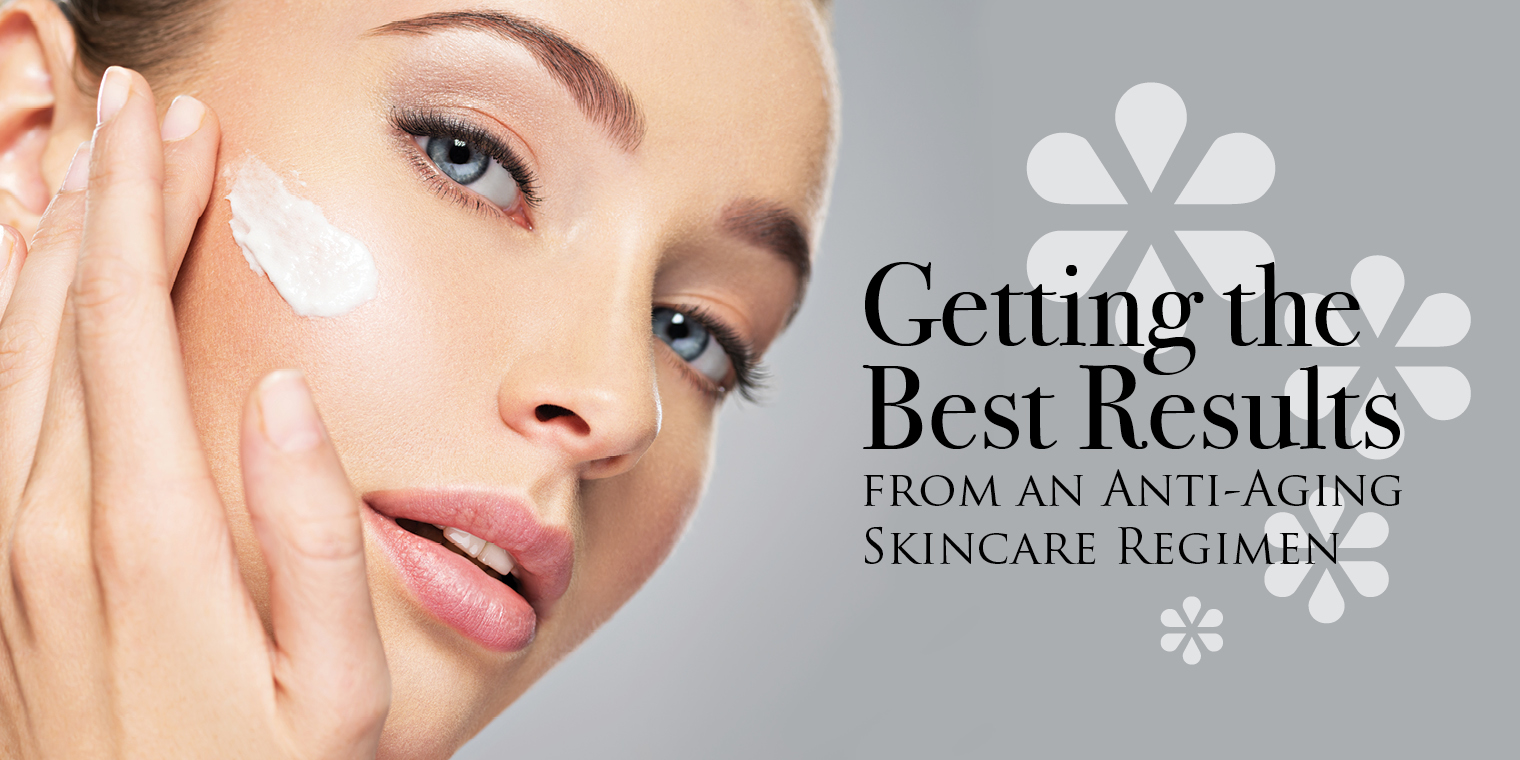To reap the best benefits from anti-aging skincare products, you need to have the right products for your skin and apply them in the right order. Barbara Mead, a licensed master esthetician with her own practice, Facial Zen in Herndon (FacialZen.com), shared her knowledge and expertise about anti-aging skincare products.
Everyone’s skin has different needs, so the products you use should be tailored to your skin type, concerns and priorities. Consult a professional to make sure you’re using the right products and formulations. Mead recommends starting with a gentle cleanser with little or no detergent. Detergents can strip the skin of intercellular lipids, essential and protective fats that aging skin already has in shorter supply. Mead suggests using a low-foaming cleanser or a cleansing milk.
“Always apply products with a thinner consistency before thicker, creamier products,” says Mead. “If you put thicker products on first, they will keep the thinner products from penetrating the skin.” Using this rule, liquids, such as toners, are first after cleansing.
If you use a toner, make sure it does not contain an astringent but is alcohol free and contains a humectant like butylene glycol, hyaluronic acid, glycerin or sorbitol to help keep moisture in the skin.
“Once each product has penetrated the skin, it is safe to move forward,” says Mead. Serums or gels should follow liquids, then oils, lotions, creams or any ointments or balms. “Serums fall under a broad list of products that target specific concerns for all skin types, including antioxidant serums, growth factor serums, DNA repair serums, epidermal repair serums, vitamin A serums, blemish serums and pigment fading serums,” she says.
Moisturizer helps the skin better retain water. Mead says that formulations that include peptides enhance skin rejuvenation. The consistency of a daytime moisturizer will depend on how dry or oily your skin is.
Drier skin produces less oil and requires more emollients. “Emollients protect the skin by preventing moisture loss and prohibit environmental irritants from getting in,” says Mead. Emollients include cocoa butter, squalene and lanolin.
Oily skin needs a day cream that contains fewer emollients and more hydrators. According to Mead, “Hydrators contain less than 5 percent lipids, while moisturizers contain up to 25% lipids.” Hydrators include sodium hyaluronate and allantoin. Mead currently works with and recommends the Osmosis Pur medical skincare line of products and is looking into other formulations as well.
All your other products won’t mean much if you don’t protect your skin with sunscreen every day. Skincare experts recommend physical sunblocks over chemical sunblocks. Physical sunblocks contain ingredients such as zinc oxide or titanium oxide that block ultraviolet rays. They do not cause allergic reactions and do not cause hormone disruption. Chemical sunscreens rely on a chemical reaction to protect skin, and they tend to break down more quickly in the sun.
“Sunscreens are best applied on top of other products and should be pressed into the skin for best coverage,” says Mead. After sunscreen, it’s best to wait a few minutes before applying makeup to make sure the sunscreen has been absorbed for maximum protection. Mead recommends Suntegrity 5-in-1 BB cream SPF 30 and adds that mineral makeup, such as that by Jane Iredale, also provides sun protection.
Tips for Aging Skin
Any products you put on your face, you should also put on your neck and decollete, and don’t forget your ears when putting on sunscreen. Also, don’t overlook the care of your eye area and lips as part of your anti-aging routine. Night time is the best time to repair and restore the delicate skin in these areas. Mead recommends Osmosis Refresh PM and Sorella Apothecary Lip Hydrator.
An up-and-coming moisturizer ingredient you’re likely to start hearing about is beta glucan. Mead says, “Beta glucan is a natural polysaccharide and offers several regenerative properties to the skin.”
Production of ceremides—lipids that are an essential component of our skin—decreases as we age. Some products contain topical ceremides, but Mead says, “The best way to deliver ceremides is by taking a high-quality wheat germ oil supplement, which is absorbed by the blood and delivered deep within the cells of the body and eventually reaches the skin of the entire body from within. Studies have shown that skin hydration increases on average by 35 percent.”






